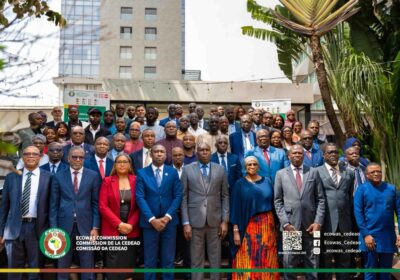The Exit of Niger, Burkina Faso, and Mali from ECOWAS: What’s Next ?
By Raymond Enoch
The recent decision reached by Niger, Burkina Faso, and Mali to withdraw from the Economic Community of West African States (ECOWAS) has fundamental questions and raised concerns across the region and beyond.
The departure which eventually finalized on January 29, 2025, raises serious questions about the future for these three countries within the framework of hitherto existing regional integration, economic stability, and security cooperation prevalent in West Africa.
These three countries, now forming the Alliance of Sahel States (AES), have undergone military takeovers at different times under varying circumstances. Mali was the first to witness a military coup in 2020, followed by Burkina Faso in 2022, and lastly Niger in July 2023, under the leadership of General Abdourahamane Tchiani. Despite their individual experiences, these countries have found common ground in resisting ECOWAS policies, leading to their eventual exit from the regional bloc.
ECOWAS has long stood as a strong pillar of economic and political cooperation in West Africa, facilitating trade, security collaboration, and democratic governance.
The departure of these three member states however, signifies a significant shift in regional dynamics, with implications for economic partnerships, security operations, and diplomatic relations. Many citizens within these nations are now questioning what comes next—will their economies thrive or suffer outside ECOWAS? Will alternative alliances, such as AES, provide the stability and development that ECOWAS has historically championed? What is their own future under the New circumstances?
Regional leaders and international stakeholders are closely watching how this situation unfolds, as the decision to exit ECOWAS could either serve as a precedent for further action or push forward opportunity for reform in response to the changing political landscape.
The exit of Niger, Burkina Faso, and Mali from ECOWAS presents a complex geopolitical and economic challenge for the region. While the military governments in these countries justify their departure as a move to protect national sovereignty and resist external influence, the broader question remains: who truly benefits from this withdrawal?
ECOWAS has played a crucial role in fostering economic integration, regional stability, and democratic governance over the past five decades. However, its imposition of sanctions and diplomatic pressure on military-led governments has fueled tensions, leading to a growing divide between member states. The creation of the Alliance of Sahel States (AES) is an attempt by these nations to forge a new path, but will it offer the same benefits as ECOWAS has done? That is the question that seek an answer.
From an economic standpoint, trade restrictions and the loss of ECOWAS privileges could impact businesses, financial institutions, and the mobility of citizens. Security concerns also loom large—ECOWAS has been a key player in combating terrorism and transnational crime in the Sahel region. Without its framework, how will Niger, Burkina Faso, and Mali address these persistent threats effectively?
Diplomatic engagement remains an option, but the feasibility of these nations rejoining ECOWAS depends on political will and regional interests. As West Africa grapples with this unprecedented shift, the role of other key players—including the African Union and international partners—will be critical in shaping the future of regional cooperation.
The coming months will be crucial in determining whether the AES can sustain itself as a viable alternative or if internal and external pressures will lead to a reconsideration of its stance. For now, West Africa stands strong cord within it’s member Countries in ECOWAS in navigating its regional history, celebrating it’s scuesss and forging it’s future .








